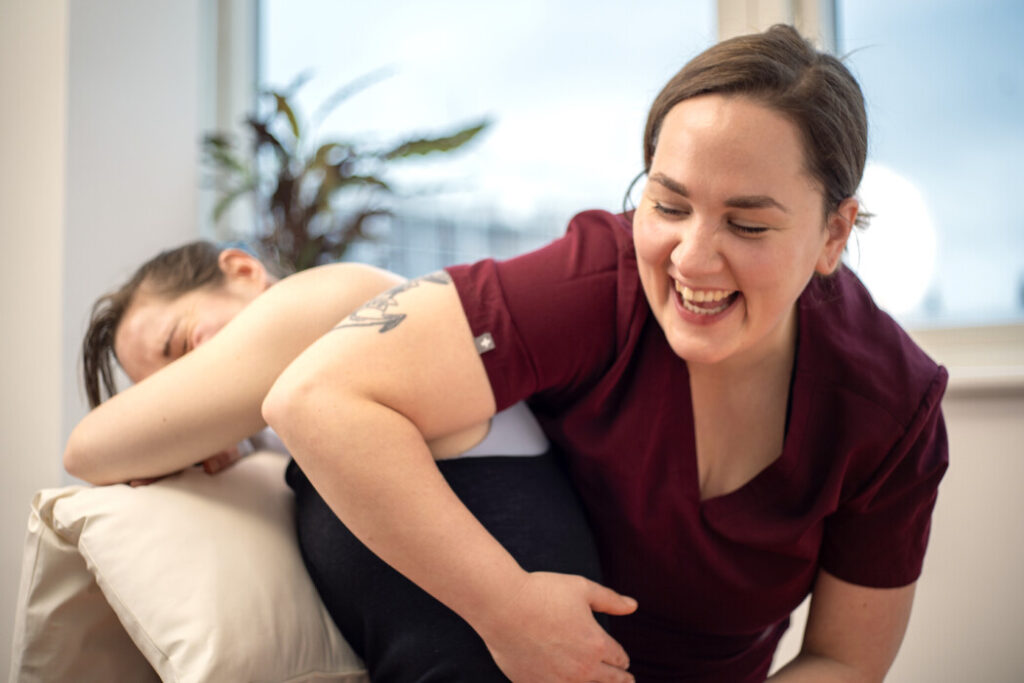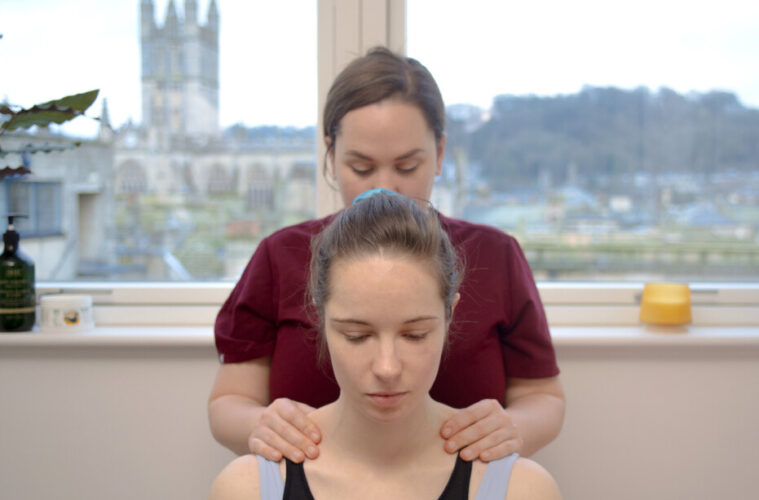Soft tissue, Yoga and Ayurvedic Therapist Chelsea Rixson from The Salus Centre in Bath discusses some of the aches and pains that new mums suffer, and advises how they can be treated
Embracing parenthood is an incredibly rewarding journey, filled with joy and precious moments. However, amidst the joy, it’s crucial to acknowledge and address the biomechanical hurdles that often accompany the arrival of a new baby.
From the tender care of a newborn to managing daily responsibilities, the physical demands on a new parent can be both intricate and challenging.

The parent’s body undergoes significant changes to adapt to these new demands. Tasks such as holding, feeding, and comforting a baby involve repetitive motions, leading to strain in the wrists, arms, shoulders, and back. The design and arrangement of essential baby equipment, such as cribs, play a vital role in minimising the impact of these biomechanical challenges.
Cribs’ height
Cribs’ height, the angle required for bending and the frequency of lifting the baby in and out all contribute to the biomechanical stress on a new parent’s body. When setting up a nursery, it’s common to place the crib against a wall for space efficiency. However, this may lead to accessing the crib from only one side, potentially causing an imbalance in the body. Prolonged and repetitive bending from one side can strain the lower back, resulting in discomfort and potential long-term issues.
Small adjustments to baby products
Thoughtful consideration of baby product design can help alleviate these strains. Investing in adjustable cribs, ergonomic baby carriers that distribute weight evenly and supportive feeding chairs can make a significant difference. Small adjustments, such as placing the crib away from the wall or in the centre of the room, and alternating sides when feeding and carrying your infant, can enhance the comfort of caregiving and contribute to the overall health and well-being of the entire family.
Physical recovery
Mothers and birthing parents face additional biomechanical challenges due to the changes during pregnancy and childbirth. It’s essential to recognize that recovery is not linear and to provide oneself with the necessary space and time physically and emotionally after giving birth. Factors like changes to pelvic floor muscles, increased flexibility from hormonal shifts, and diastasis recti can persist postpartum, intensifying with the demands of caring for a newborn. Prioritising physical recovery is crucial for new mothers.
Exercise programmes
Understanding how the body reacts to the birthing process and early years of caregiving is vital for devising effective treatment and exercise plans. Pelvic floor exercises, core-strengthening routines and proper body mechanics when lifting and carrying the baby can significantly alleviate biomechanical stress. Healthcare professionals and fitness experts play a crucial role in guiding new mothers through tailored exercise programs and manual therapy to address their specific postpartum needs.
While the joys of parenthood are immeasurable, it’s equally important to recognize and address the biomechanical challenges that new parents face. From the strain of caring for a newborn to the impact of childbirth on the body, these challenges are intricate and require thoughtful solutions.
By incorporating proper body mechanics, targeted exercises, ergonomic baby products and simple changes that can have a big impact, new parents can navigate their parenthood journey with greater comfort, health, and resilience.
For more expert advice as well as guidance and treatments to aid physical recovery, contact Chelsea at email hidden; JavaScript is required and 07538 131 503. You can also visit www.thesaluscentre.co.uk


